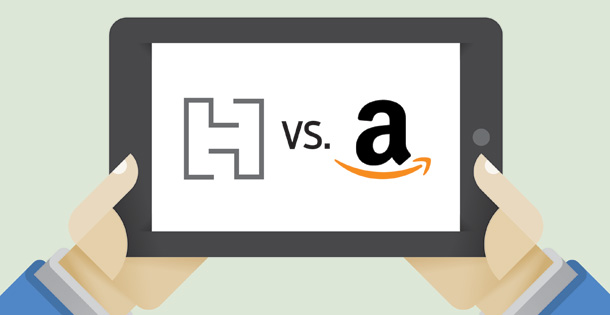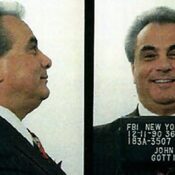Last year’s scuffle between Amazon and Hachette, the book publisher that refused to cave to Amazon’s demands, raised a lot of questions — questions that remain despite the bitter truce the two companies agreed to in November. Namely, are writers mere content producers subject to the whims of the marketplace? Are books no more than commodities — the equivalent of, say, boxes of cereal or widgets? Is Amazon trying to help writers, or is it only concerned with the bottom line? [Read the related article “Adventures in the Kindle Trade” by Lawrence Grobel from the Jan/Feb 2015 issue.]
To recap the conflict, Amazon, which controls 90 percent of the market for e-books, decided last spring that the correct price for a new e-book should be $9.99. That’s much cheaper than the current hardcover price of roughly $26, and less than the cost of most paperbacks. Five of the six big publishers said yes. One company, Hachette, said no. Amazon, in retaliation, stopped allowing pre-orders on Hachette books (pre-orders are tallied together with first week orders in calculating the all-important best-seller lists). The retailer also dropped certain Hachette books entirely, refused to discount others, and delayed delivery on still more.
Hachette is itself a big company, and e-books make up a small part of its profits. The ones who got hurt were the Hachette authors, whose e-book sales, for the most part, plummeted.
Trade wars like this are common in the business world. Super-sized retailers (think Walmart) often put the squeeze on vendors, demanding lower pricing. No one cares when the products in question are appliances or beauty products. Least of all consumers, who benefit from lower prices. But here, we’re talking about writers, about whom many of us have a certain romantic affection.
Last September, a group of 900 authors, including such notables as John Grisham, Anna Quindlan, and Stephen King, bought a full-page ad in The New York Times that rather gently beseeched the Internet giant “to resolve its dispute with Hachette without further hurting authors.”
For quite a while Amazon stood its ground, arguing that keeping e-books cheap is good for writers. According to its own research, pricing new e-books at $9.99 should result in higher gross sales than pricing them at $14.99, as Hachette would prefer. “The customer is paying 33 percent less and the author is getting a royalty check 16 percent larger. … The pie is simply bigger,” says Amazon in an open letter.
Many in the book industry dispute Amazon’s figures, much less its purported mission of being helpful to authors. Hachette’s CEO Michael Pietsch accused Amazon of simply being a bully, saying in an interview that the online giant “is seeking a lot more profit and even more market share, at the expense of authors, bricks and mortar bookstores, and ourselves.”
So who was right? It’s clear that Amazon, for all its desire to appear as a friendly independent bookstore — albeit on a massive scale — probably regards books the same way it does hardware and clothing, using metrics and algorithms to track and move sales. It doesn’t edit books; it doesn’t market books; it doesn’t nurture writers. “To many book professionals, Amazon is a ruthless predator,” writes George Packer in The New Yorker.
But Hachette is not exactly a warm and fuzzy operation either. The days of publishers truly nurturing writers are long gone. All the major publishing companies are part of international conglomerates. The big money today goes to celebrities, YouTube stars, or businesspeople with built-in audiences. The so-called mid-list writers (the no-name folks who are simply good at writing) are not drawing big advances or getting much marketing support.
The larger issue is that, like it or not, the Web has democratized the writing game. Amazon isn’t responsible for this. They’ve just built a system that’s seamless and easy-to-use. Today, anyone can publish, and sometimes it seems that everyone does. (There are 152 million blogs, and counting. And more e-books are being self-published each year than traditional ones.) Go ahead! Upload that great American novel to the Kindle platform! It only takes just a few mouse clicks.
With so many books online, it’s only natural that the price of books must drop. We’d all like to get cheaper books. And, if cheaper books and a more democratic system of publishing meant more books from more writers reached the market, that sounds like a good thing. But if it also meant that the average book was of poorer quality, lacked editing or even basic proofreading, and that some of the very best writers couldn’t make enough money to justify staying in the writing game, well, that really wouldn’t be so good after all now, now would it?
Become a Saturday Evening Post member and enjoy unlimited access. Subscribe now



